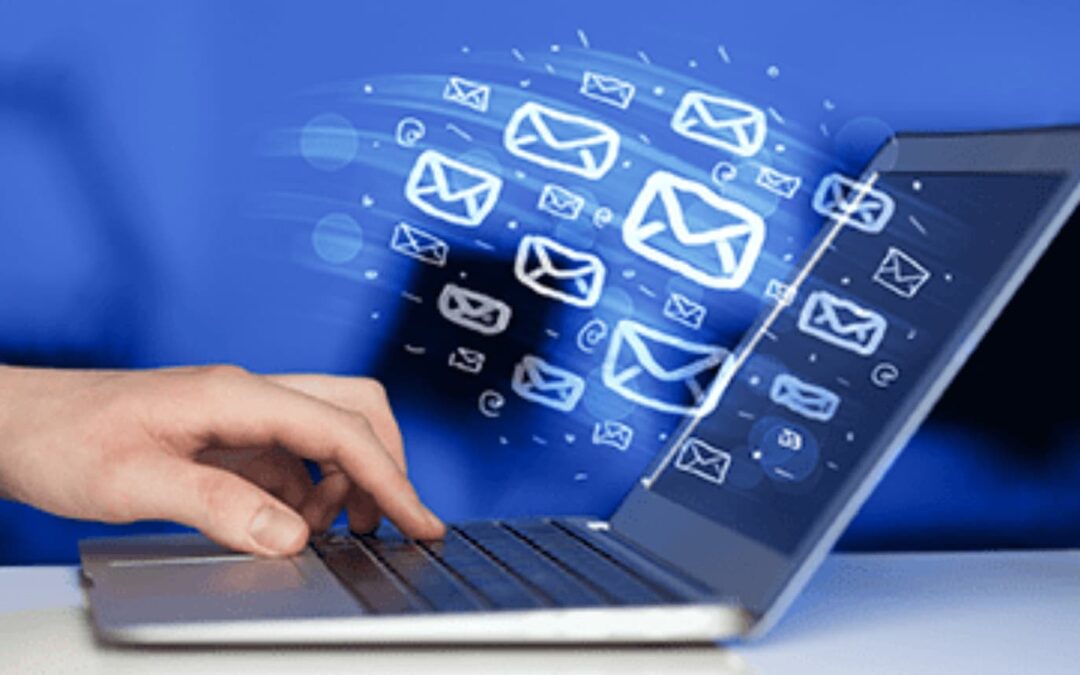Email is a crucial tool for sending messages over the internet. It allows users to send and forward notifications containing text, files, images, or other attachments to the intended recipients. In essence, email enables individuals to send information to specific people or groups and store it on a computer. Fast Panda’s team of specialists has expertly crafted this blog post to help you understand the nuances of the subject. To advertise your business or website effectively, obtaining an impactful email address is key. Using commonly used platforms like Gmail or Hotmail can boost the effectiveness of your advertisements. This simple step helps demonstrate to potential customers that your business provides professional service, making it easier for them to communicate with you. Let’s explore this topic further.
What is an Email Address?
Email servers transmit email messages. To log in to your email account, enter a valid email address, password, and the mail servers for sending and receiving messages. Most webmail servers automatically configure your email account. However, if you use Microsoft Outlook or Apple Mail, you may need to manually configure each account. This involves entering the incoming and outgoing mail servers, along with their respective port numbers, and your email address and password. Originally, email was designed to support rich text with special formatting, but the initial standard only allowed plain text messages. Nowadays, HTML is widely supported for regular email messages. Additionally, users can send files, known as “email attachments,” alongside email messages. Many mail servers allow users to send multiple attachments with each message. While attachments were typically limited to 1 MB in the early days of email, many servers now support attachments of 20 MB or larger. Ray Tomlinson sent the first email containing the message “QWERTYUIOP” in 1971, marking the inception of email. Since then, significant enhancements have shaped the email system into its current modern structure. 
Why should we use an Email Address?
Having an email account is crucial for businesses, but it’s equally valuable for individual users. Nowadays, nearly all platforms require users to have an email address to register. It’s a prerequisite for shopping on these platforms or accessing their systems. Moreover, your email address serves important functions like receiving password reminders across all platforms you engage with.
What is the difference between Email and Webmail?
The term “email” is commonly employed nowadays to refer to both browser-based electronic mail and non-browser-based electronic mail. Examples of browser-based emails include AOL and Gmail, while non-browser-based options encompass Office 365 and Outlook. However, there’s been a rise in non-browser programs that used to require specialized clients and email servers to handle email communications. Non-browser emails present certain benefits to users, such as enhanced security, seamless integration with enterprise software platforms, and the absence of advertising.
How to use Email?
To effectively use email, consider its various applications. You can use it to communicate within organizations or personally, either with individuals or groups. Most people prefer using email for chatting with colleagues, friends, or small groups. It lets you interact digitally, sharing images, documents, links, and other files. Email also offers flexibility, allowing communication at your convenience. Another advantage is its ability to manage interactions among multiple parties. You can use it to remind attendees of deadlines or send professional follow-up emails after appointments. It’s handy for keeping track of upcoming events and notifying groups of schedule changes. Companies often use email to share information with employees or customers, such as through newsletters promoting their content. Emails are also a powerful tool for converting leads into paying customers. For instance, a company might set up automated emails to reach out to online customers who have items in their shopping carts. These emails serve as gentle reminders, prompting consumers to complete their purchases before the items go out of stock. Furthermore, emails are utilized to collect post-purchase reviews from customers. Companies can conduct surveys to gauge the quality of their service by including a question in the email as well.

What are the advantages of using Email?
Email, a ubiquitous tool in today’s world, offers several crucial benefits. Below, we outline the advantages:
Affordability
Email is free and can be accessed from anywhere with an internet connection. Plus, it’s eco-friendly since it doesn’t use paper.
Simplicity and Speed
Email platforms are easy to use. You can send messages within seconds.
Bulk Sending
You can send the same email to many people at once, making it handy for business and e-commerce.
What are the disadvantages of using Email?

Despite its benefits, email has its downsides:
Impersonal Nature
Compared to other communication methods, email lacks the personal touch. Face-to-face meetings or phone calls may be more effective for establishing meaningful connections.
Potential for Misunderstandings
Without the nuances of body language and tone of voice, emails can lead to misunderstandings. Moreover, unauthorized access to email accounts can result in legal complications.
Spam and Security Concerns
The proliferation of spam emails poses a significant challenge on emails. Unwanted advertisements and spam messages not only disrupt users but also pose security risks, including virus transmission.
Information Overload
The ease of sending emails to multiple recipients can lead to information overload, especially in fast-paced work environments. Managing and organizing emails becomes essential to avoid being overwhelmed, particularly after returning from vacation.
Virus Threats
Email serves as a common vector for virus transmission. Viruses may be attached to email documents or embedded in links, posing a risk to device security when opened. With Fast Panda, bring your online dreams to life! Enjoy free hosting, SSL security, personalized email, and top-tier domains. We are just a click away!

